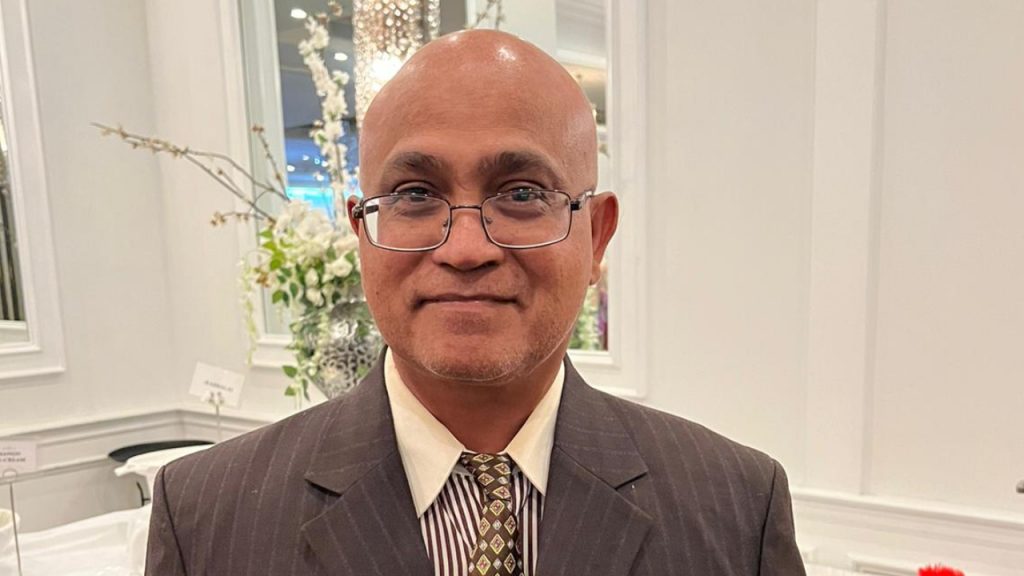India celebrates Republic Day (1950) on Thursday as part of its 75 years of independence (1947). There are significant reasons – economic and security — for greater Guyanese engagement with India. Guyana has had close relations with India even before independence in 1966; India was the only developing (or so called Third world) country to establish an office (albeit cultural mission) in British Guiana and that relationship has grown and expanded over the decades. With today’s globalization and interdependence, that relationship should be strengthened especially now that India has been rising economically and militarily and has assumed the Presidency of G-20 nations for the rest of this year with a summit to be held in Delhi in November.
It should be noted that India surpassed Britain last year as the world’s fifth largest economy. India is gearing up to reach US$5 Trillion GDP by end of 2025 and $7T by 2030. It is one the fastest growing economies among G-20 and is vital for global trade and investment. Every developed country has been courting India for trade treaties. Security and political pacts have also been signed with major western powers. Guyana must follow the course of other nations in its relations with India by strengthening linkage that will lead to significant economic and security benefits for both countries. Errors of the past should not be repeated.
It will be recalled that Desmond Hoyte closed the Guyana mission in Delhi during the 1980s. Although India was the source of much funding and financial assistance for Guyana since 1966, the Hoyte regime closed the India mission but retained other useless missions around the world that were not beneficial to Guyana. When Guyana was in dire economic straits during the 1980s, India was the source of financial assistance. Guyana ended up owing India tens of millions of American dollars by the 1990s. As promised in New York at a GOPIO meeting, President Jagan re-opened the mission in Delhi post 1992 and also visited India (1994) resulting in an improvement of ties. Jagan was successful in getting debt cancellation. All the Presidents, saved, Janet Jagan, made state visits to India seeking economic assistance. Guyanese Americans lobbied Prime Minister Atal Biharri Vajpyaee, Manmohan Singh, and Narendra Modi for increased assistance to Guyana. Indian governments responded positively. Large amounts of financial assistance flowed to Guyana during the presidencies of Bharrat Jagdeo, Donald Ramotar, David Granger, and now under Irfaan Ali. But Guyana has not always been grateful and in fact Guyana has been lukewarm to Indian overtures on trade and business relations – India was not awarded important contracts like building the Skeldon factory and hydro-dams that went to another Asian power. India was also rebuffed in its commitment to purchase all of Guyana’s oil at market prices. Guyana would not have had to pay a commission to sell the oil as India was willing to purchase the crude directly at source. Guyanese media reported that Saudi Arabia was granted the contract to market the oil when India offered to directly purchase it. Another oil giant (BP) was awarded the contract last November to sell Guyana’s share of the oil. Guyana should re-think this policy especially if India retains an interest to purchase Guyana’s oil.
On oil development, it was welcome news when President Ali announced that India has agreed to build an oil refinery in Guyana and also partake in investment in other manufacturing activities. President Ali must be lauded for winning over hearts and minds in India and getting several business deals signed during his week-long visit. On this note, High Commissioner (Ambassador) Dr. Srinivasa should be commended for arranging for these commercial engagements and for bringing the two countries much closer. (Srinivasa is a beloved figure in Guyana). This, hopefully would be a turning point in the relations between the two countries.
Vice President Jagdeo will travel to Delhi next month to complete negotiations on the oil refinery and other large-scale investment and sign contracts. The VP should look at other economic opportunities to strengthen ties with India’s large manufacturing sector – like in pharmacy and other health care products, by-products of refining oil, urea, by products of sugar and other aspects of agriculture, etc.
India cannot and must not be ignored. India has become a major and an increasingly important global power. Almost every country, including the poorest ones in Africa and Latin America, has a large mission in Delhi to promote ties and lobby for India’s assistance. Recognizing India’s growing importance, St. Vincent opened a High Commission last year in Delhi. Guyana’s High Commission in Delhi should be upgraded — with a Trade Representative or Counselor or Commercial Director to boost business and trade ties. And with the recent challenges facing Guyana in the area of national security, there should be a representative or advisor in Delhi on political and security matters. With Guyana’s growing demand for technology and educational advancement, a representative on cultural and educational affairs would also help to provide greater training to Guyanese.
Although having stood in solidarity with British Guiana freedom fighters since the 1950s and provided large amounts of assistance to Guyana since 1966, the two countries should take every measure to cement economic, security, political, and cultural ties. Such measures should have rare bipartisan support in parliament by the two major parties. (*Dr. Bisram, who travels to India regularly and an Indophile, is a specialist on India and South Asian Affairs)
